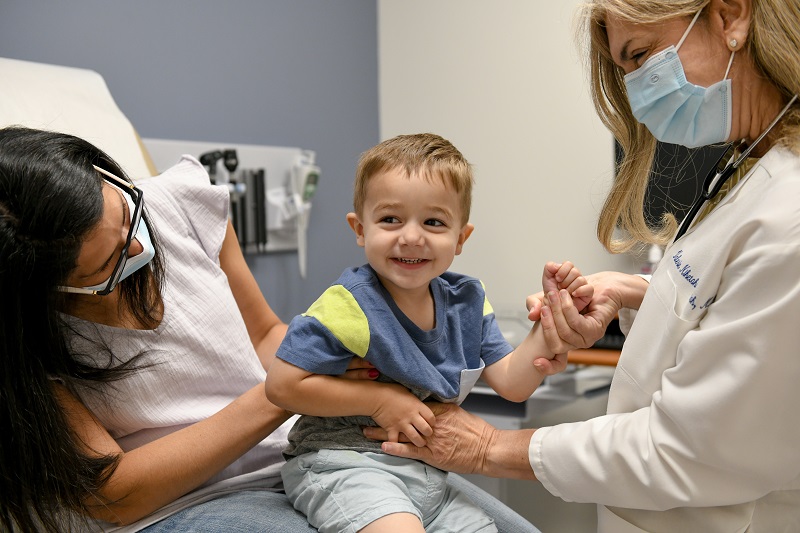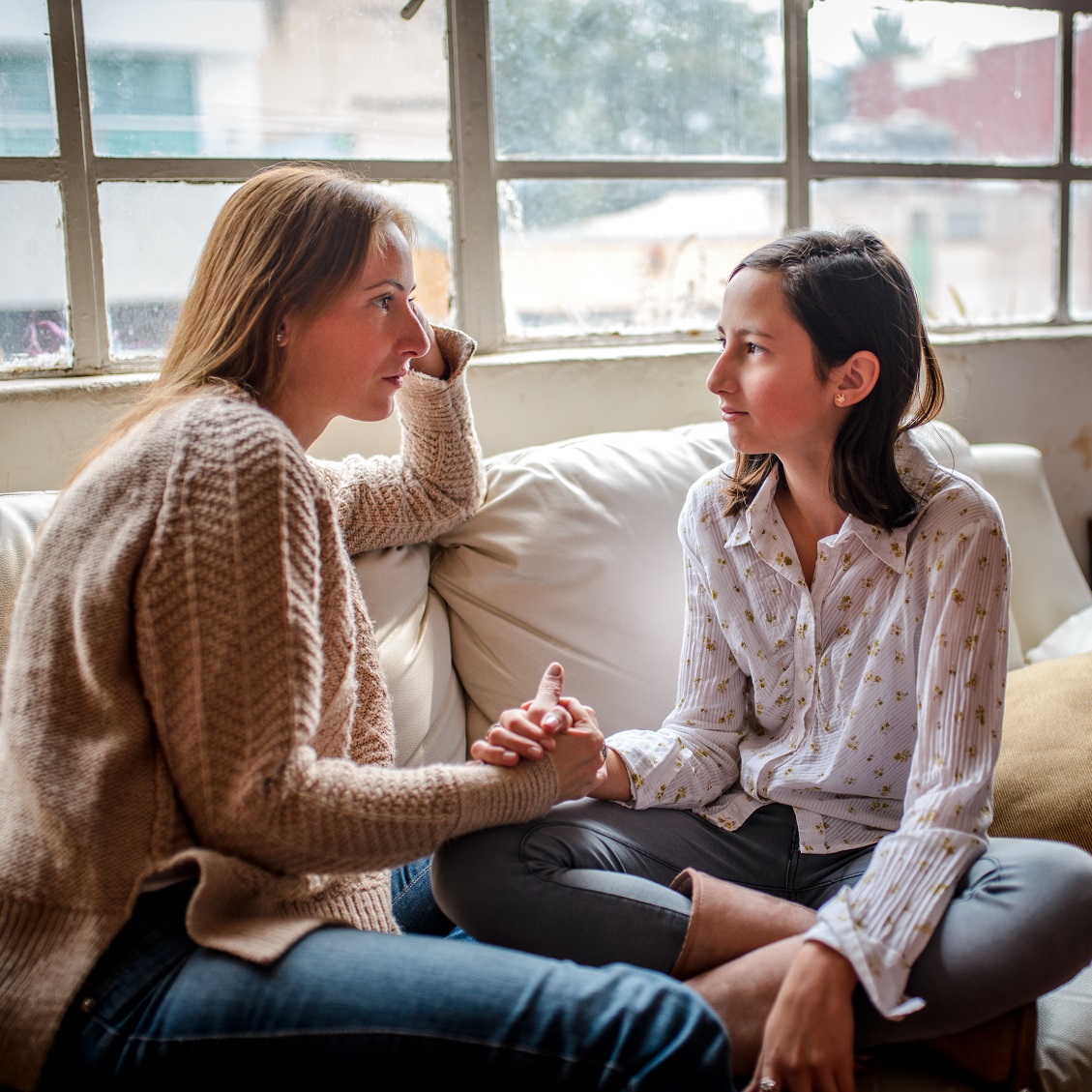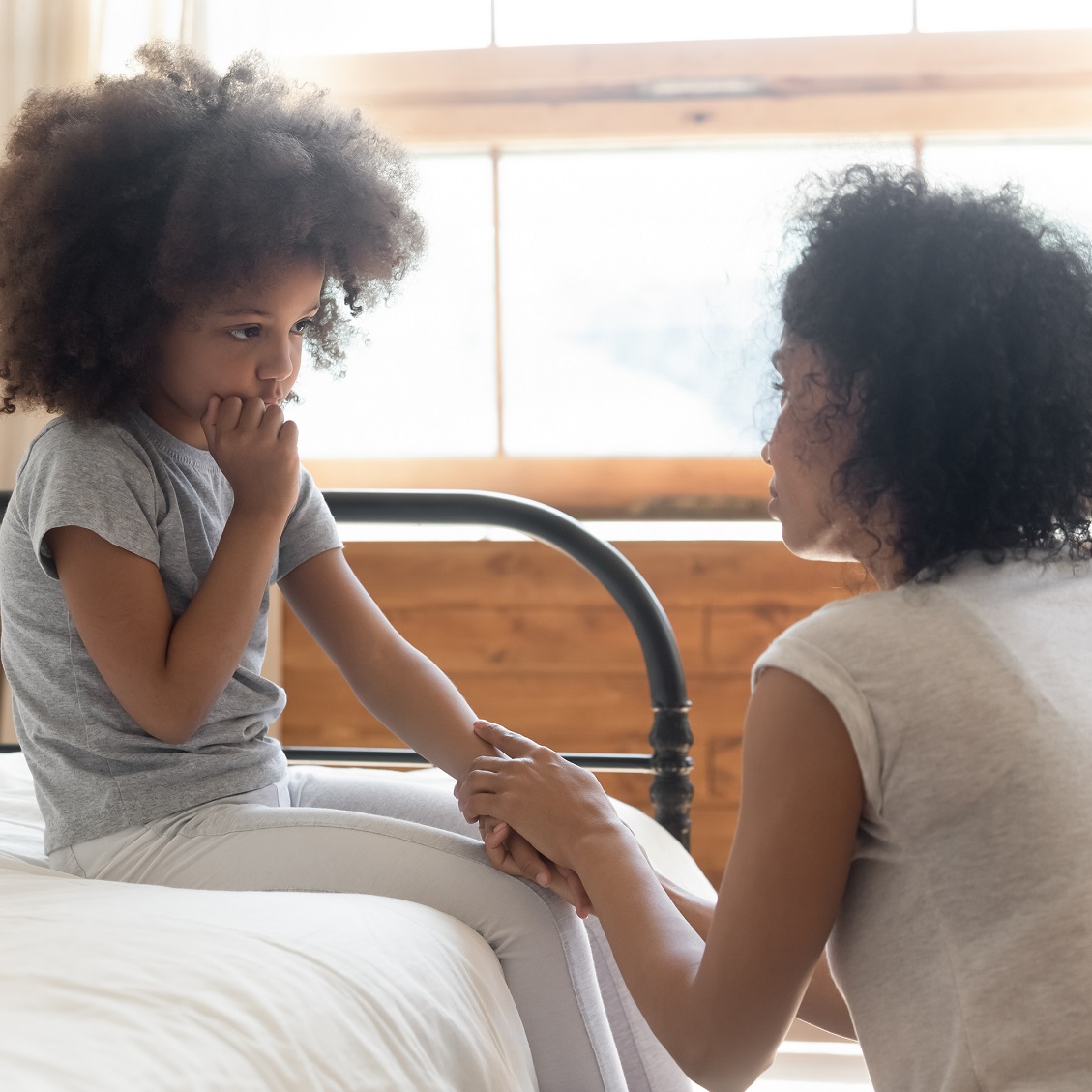Should I Get My Child Vaccinated?

August 04, 2022
In June 2022, the Centers for Disease and Control Prevention (CDC) announced its recommendation that children who are six months or older receive the Pfizer-BioNTech or Moderna vaccines to better protect them from COVID-19. Lots of parents are wondering if they really need to vaccinate their children, since COVID cases in kids seem to be mild.
“For most kids, things have been very mild. However, there are a lot of post-COVID infection-related illnesses that have been prevented with the vaccine,” says Katharine Clouser, M.D., co-director of Pediatric COVID 19 Recovery at Joseph M. Sanzari Children’s Hospital at Hackensack University Medical Center. “Getting the vaccine will protect kids from not only COVID but also help reduce the risk of long-term problems and illnesses.”
When Should Kids Get Vaccinated?
Harpreet Pall, M.D., chair of Pediatrics at Hackensack Meridian School of Medicine, suggests that kids over the age of six months should get vaccinated as soon as possible. “These vaccines have proven to be safe and effective, so I definitely suggest that parents go ahead and get their kids vaccinated. We want to do what we can to prevent them from getting sick,” Dr. Pall says.
The vaccination will protect kids on any summer vacations you may have planned and will have them ready to return to school fully vaccinated.
Neither Dr. Clouser not Dr. Pall recommends delaying boosters for kids to try and align with a possible winter spike. “Boosters don't become fully effective for three weeks following the dose, so waiting will just delay further,” Dr. Clouser says. “In addition, approval for children can lag behind, so though we hope for an omicron-targeted booster in the fall, children may have to wait longer—putting them at higher risk for serious disease.”
Adds Dr. Pall: “There is no time like the present to start the process of getting your children vaccinated. COVID is present, and school is starting soon. Parents want to be sure to start the vaccination primary series for their kids.”
Which is Better: Pfizer or Moderna?
Both COVID vaccines from Pfizer and Moderna have been approved for children six months or older. The Pfizer vaccine will be administered over three doses, while Moderna will be done in two doses. These doses are smaller than what is given to adults. However, the Moderna vaccine is a bit more powerful—meaning it has a higher viral load than the Pfizer vaccine, which is why it can be done in just two doses. This does mean that children may experience more side effects with Moderna.
What Are the Side Effects of the COVID Vaccine?
According to the CDC, common side effects for children four years and older include:
- Fever
- Pain, redness or swelling at the injection site
- Tiredness
- Headache
- Chills
- Swollen lymph nodes
- Muscle or joint pain
For children three and under, common side effects may include:
- Pain at the injection site
- Swollen lymph nodes
- Irritability
- Tiredness
- Loss of appetite
These side effects are usually mild and more likely to occur after the second dose. “I have been impressed with how few side effects children experienced during the trials,” Dr. Clouser says. “The data shows that children are tolerating the vaccines really well.”
Should Children Who’ve Already Had COVID Get Vaccinated?
According to the CDC, evidence indicates that getting vaccinated after infection of COVID can provide added protection. If your child has been infected with COVID-19, the vaccine should not be administered for three months from when symptoms started. If they did not exhibit symptoms, it should be given three months after they received a positive test.
Is it Safe to Get a COVID Vaccine at the Same Time as Other Vaccines?
“Our body is able to handle many vaccines at once,” Dr. Clouser says. “So it is perfectly safe to get a COVID-19 vaccine with other vaccines, including the flu vaccine. Parents don’t have to make multiple trips to the doctor for different vaccinations.”
Next Steps & Resources:
- Meet our sources: Harpreet Pall, M.D., and Katharine Clouser, M.D.
- To make an appointment with a pediatric specialist near you, call 800-822-8905 or visit our website.
- Find a vaccination or testing site near you
The material provided through HealthU is intended to be used as general information only and should not replace the advice of your physician. Always consult your physician for individual care.
Find a doctor near me
7 Tips for Choosing a Pediatrician

Find the right pediatrician. Seven tips from Dr. Sevilla help you choose. Convenient locations, flexible hours, and more. Call 800-822-8905.
How to Talk To Your Kids About Getting the COVID-19 Vaccine

As COVID cases surge across the country and pediatric hospitalizations are on the rise, vaccination is a critical resource to protect against infection, serious illness and death in children and adults.
Find a doctor near me

How to Help Kids Cope With Traumatic Events
Help kids cope with trauma. Learn expert advice from Dr. Kaczka-Weiss at Jersey Shore University Medical Center. Get support and resources now.

Second COVID-19 Boosters: Who Needs One and Why
COVID-19 Booster: Learn if you need a second booster shot. Dr. Varga explains eligibility and helps you decide. Schedule your appointment today.

Puberty Body Odor and Sex When to Have the Talk
Puberty, Body Odor & Sex: Guide for Parents. Dr. Al-Husayni offers advice on talking to kids about puberty. Support your child's development. Call 800-822-8905.

Easy Morning Exercises for Busy Parents
Easy Morning Exercises for Busy Parents. Dr. Patel offers simple, time-saving workouts. Improve your health and well-being. Call 800-822-8905.
